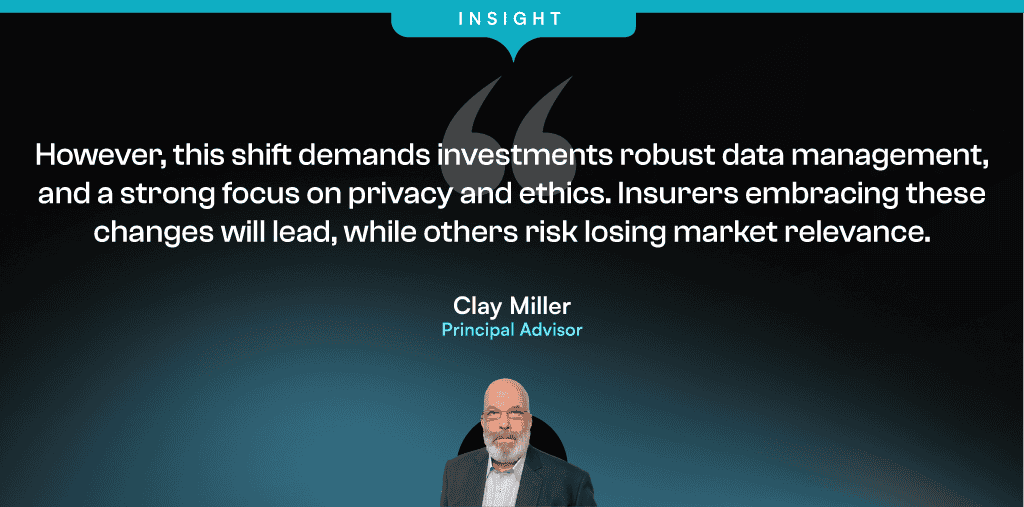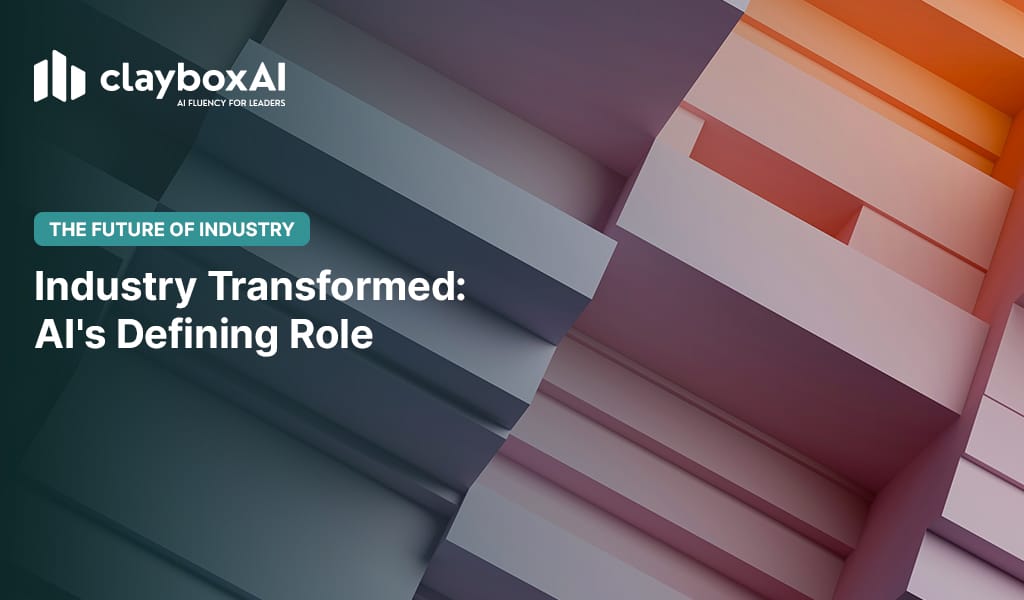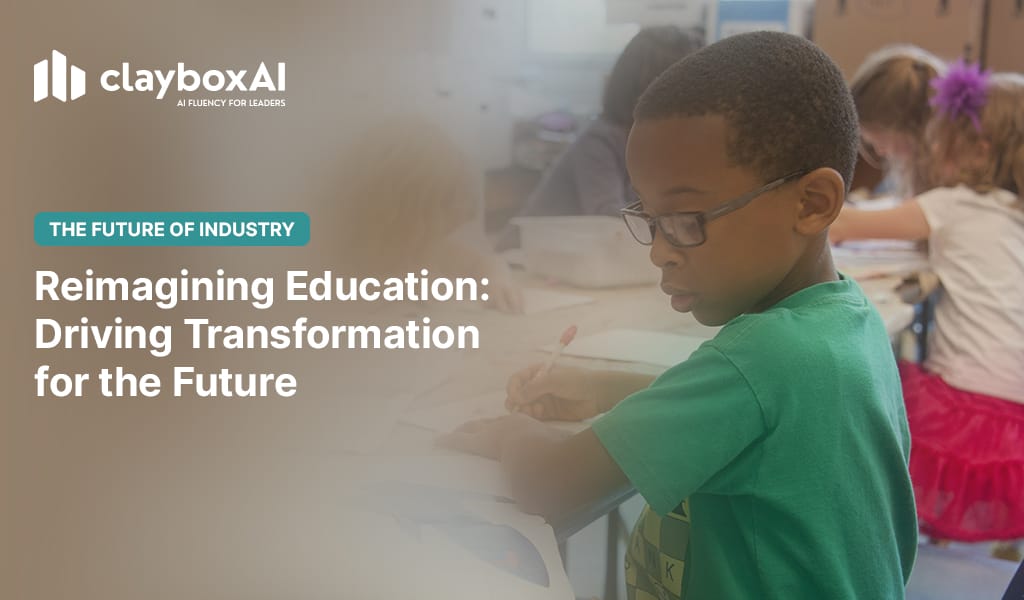Having already indelibly shaped the tech industry through rapid advancements in software development, data analysis, and automation, AI is now set to exert its influence across all sectors, from the precision of agriculture to the complexities of life sciences and the enhancement of customer interactions everywhere. The widespread integration of AI-powered productivity tools has laid the groundwork, but 2025 signifies a shift towards strategic value realisation.
Industries with established AI footholds will prioritise scaling successful applications for tangible revenue and profitability gains, while others will leverage AI to accelerate research towards future breakthroughs. Regardless of the specific sector, AI will undoubtedly be a primary engine of change, reshaping how businesses operate and compete.
1. GenAI Virtual Agents Will Reshape Public Sector Efficiency
Operating within highly structured, compliance-driven environments, public sector organisations are well-positioned to benefit from GenAI Agents.
These agents excel when powered LLMs tailored to sector-specific needs, informed by documented legislation, regulations, and policies. The result will be significant improvements in how governments manage rising service demands and enhance citizen interactions. From automating routine enquiries to supporting complex administrative processes, GenAI Virtual Agents will enable public sector to streamline operations without compromising compliance. Crucially, these innovations will also address jurisdictional labour and regulatory requirements, ensuring ethical and legal adherence. As GenAI technology matures, it will reshape public service delivery by combining scalability, precision, and responsiveness.
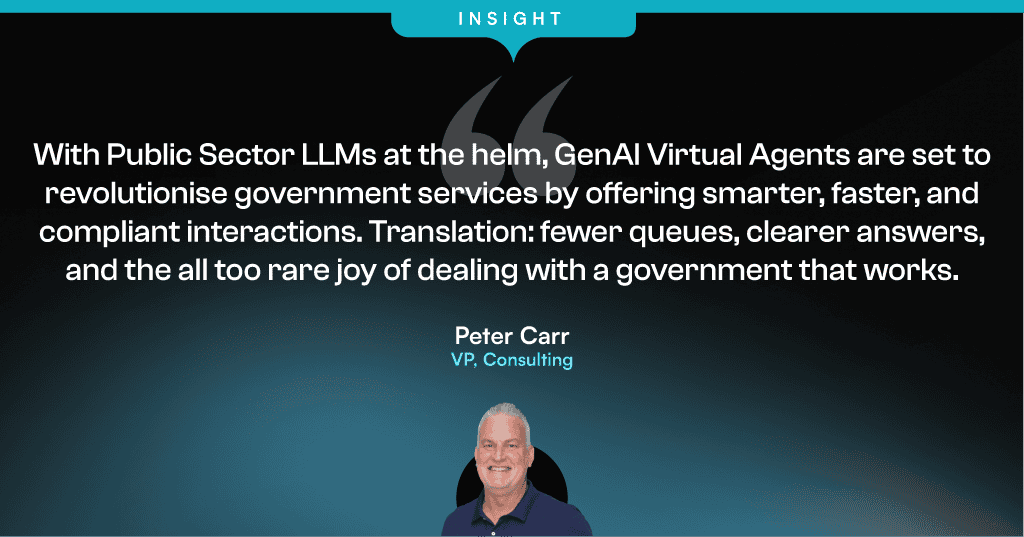
2. Healthcare Will Lead in Innovation; Lag in Adoption
In 2025, healthcare will undergo transformative innovations driven by advancements in AI, remote medicine, and biotechnology. Innovations will include personalised healthcare driven by real-time data for tailored wellness plans and preventive care, predictive AI tackling global challenges like aging populations and pandemics, virtual healthcare tools like VR therapy and chatbots enhancing accessibility, and breakthroughs in nanomedicine, digital therapeutics, and next-generation genomic sequencing.
Startups and innovators will often lead the way, driven by a desire to make an impact.
However, governments will lack the will to embrace these technologies. After significant spending on crisis management, healthcare ministries will likely hesitate to commit to fresh large-scale investments.
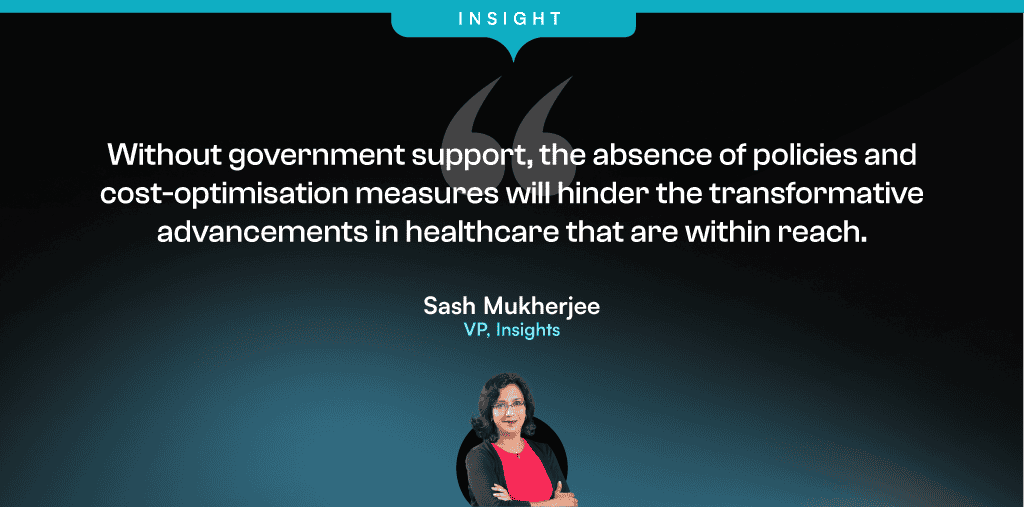
3. Agentic AI Will Move from Bank Credit Recommendation to Approval
Through 2024, we have seen a significant upturn in Agentic AI making credit approval recommendations, providing human credit managers with the ability to approve more loans more quickly. Yet, it was still the mantra that ‘AI recommends—humans approve.’ That will change in 2025.
AI will ‘approve’ much more and much larger credit requests.
The impact will be multi-faceted: banks will greatly enhance client access to credit, offering 24/7 availability and reducing the credit approval and origination cycle to mere seconds. This will drive increased consumer lending for high-value purchases, such as major appliances, electronics, and household goods.

4. AI-Powered Demand Forecasting Will Transform Retail
There will be a significant shift away from math-based tools to predictive AI using an organisation’s own data. This technology will empower businesses to analyse massive datasets, including sales history, market trends, and social media, to generate highly accurate demand predictions. Adding external influencing factors such as weather and events will be simplified.
The forecasts will enable companies to optimise inventory levels, minimise stockouts and overstock situations, reduce waste, and increase profitability. Early adopters are already leveraging AI to anticipate fashion trends and adjust production accordingly.
No more worrying about capturing “Demand Influencing Factors” – it will all be derived from the organisation’s data.
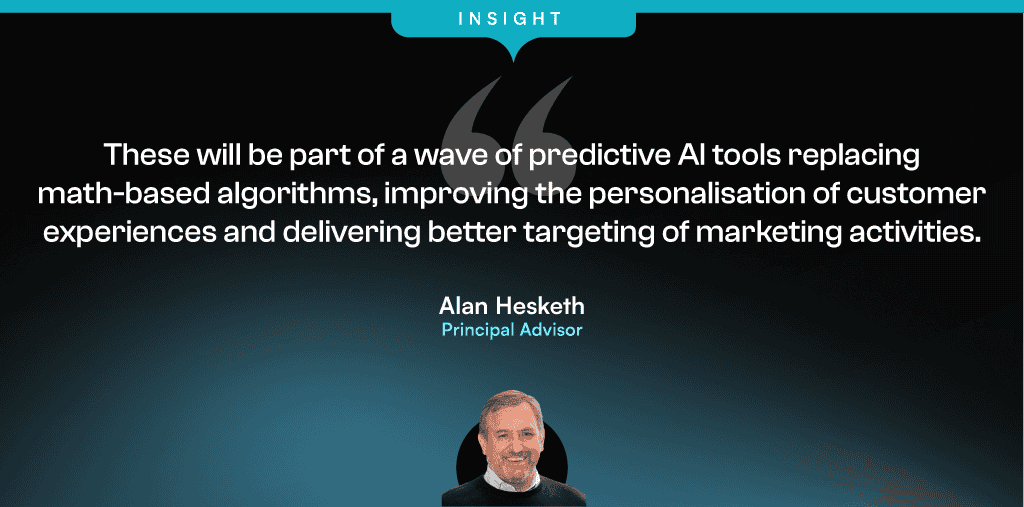
5. AI-Powered Custom-Tailored Insurance Will Be the New Norm
Insurers will harness real-time customer data, including behavioural patterns, lifestyle choices, and life stage indicators, to create dynamic policies that adapt to individual needs. Machine learning will process vast datasets to refine risk predictions and deliver highly personalised coverage. This will produce insurance products with unparalleled relevance and flexibility, closely aligning with each policyholder’s changing circumstances. Consumers will enjoy transparent pricing and tailored options that reflect their unique risk profiles, often resulting in cost savings. At the same time, insurers will benefit from enhanced risk assessment, reduced fraud, and increased customer satisfaction and loyalty.
This evolution will redefine the customer-insurer relationship, making insurance a more dynamic and responsive service that adjusts to life’s changes in real-time.
